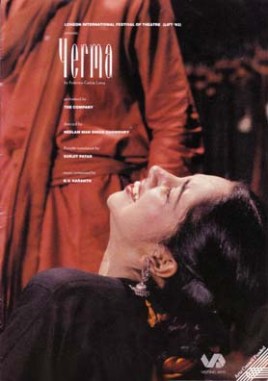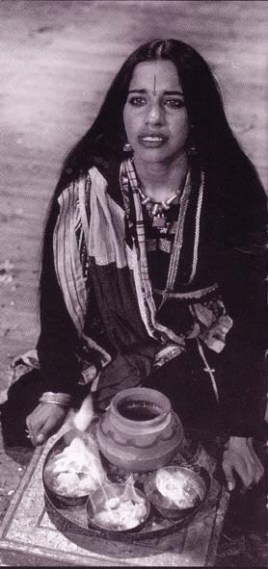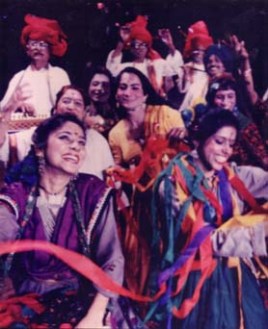 The play Yerma by Federico Garcia Lorca is a tale of a woman, Yerma, living in rural Spain with her husband Juan, in a time where it is vehemently expected of her to have a baby. The play was originally written in 1934, and was performed for the first time in the same year.
The play Yerma by Federico Garcia Lorca is a tale of a woman, Yerma, living in rural Spain with her husband Juan, in a time where it is vehemently expected of her to have a baby. The play was originally written in 1934, and was performed for the first time in the same year.
The first time I read the play I thought it was a pretty straight forward story about a woman so hell bent on fulfilling the role placed upon her by society (that of wife and mother) that she would go to any extremes to make it happen. Of course it is also an emotional play that gets it’s emotional core from Yerma’s personal struggles with the issue of her infertility.
The second time I read the play, I was a little bothered, because even thought it is obvious that Yerma’s husband, Juan, doesn’t actually want a child of his own, it also doesn’t seem that they are actually “trying” to have one. Juan is always tilling the field leaving Yerma to sleep alone. As we all know, it takes two people to actually “make” a baby. Perhaps Juan is the one that is infertile. Perhaps his little soldiers are just terrible swimmers. Of course, no one would ever dare to suggest such a thing in Yerma’s world. Maybe Juan is even a homosexual who took Yerma as a bride with the sole intention of making her his beard. His jealously over Victor is probably just spurned on by the idea that his cover might be blown if people catch wind of the fact that his wife is pining for another. People will think that he does not satisfy her. It is clear either way, that he does not. 
Yerma killing her husband (sorry if I ruined the ending for some of you), although a desperate act of passion that leads to her own even deeper self-deprecation (“I myself have killed my child”), to me was symbolic of woman breaking free from the chains of social norms of the time. Unfortunately, the words don’t particularly help this argument, but actions certainly do speak louder than words, and with woman’s suffrage taking place at around the same time, it is hard to believe that Lorca was that insensitive to women’s rights. Either way this is a play worth seeing and reading and forming your own opinions on.
Neelam Man Singh Chowdhry directed a production of Yerma in his native India. In his own blog he speaks of his connection to the play and how he tried to evoke the true emotional grit behind Lorca’s words while at the same time connecting it with the Punjabi culture. I wish that I could have seen this production if only for the sole reason that the pictures that I have posted along with this post have some of the most beautiful costumes I have seen associated with this play, and of course to view the stark contrasts and similarities between the rural Spanish and Indian cultures. I believe the play speaks for itself as a piece of emotionally transcendent art, and it’s good to know that Chowdhry did his reasearch and worked very hard to portray that.
